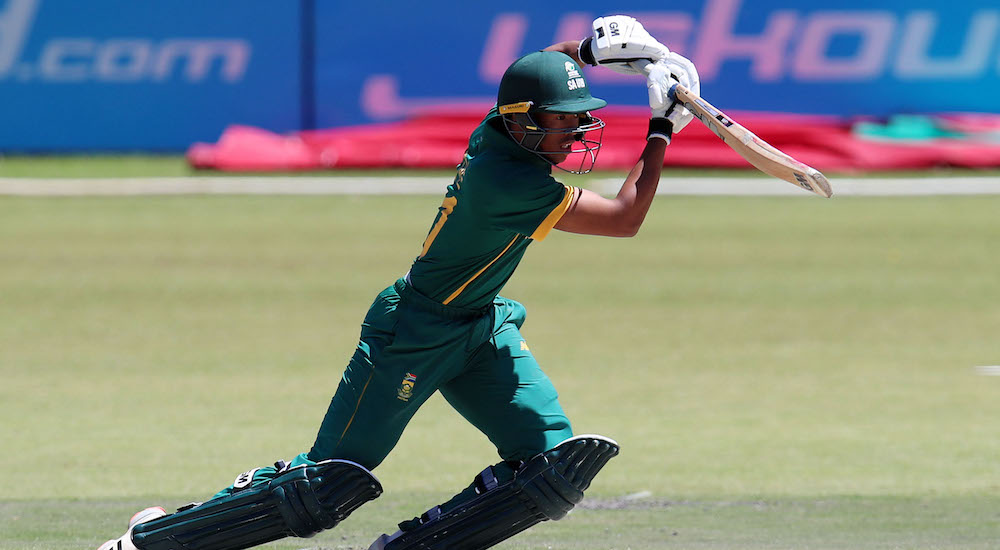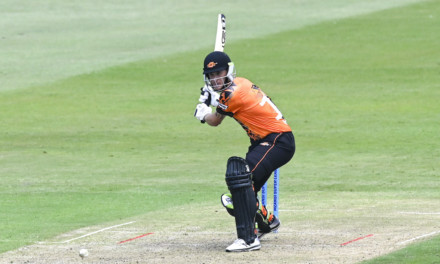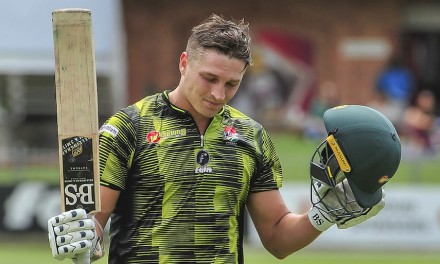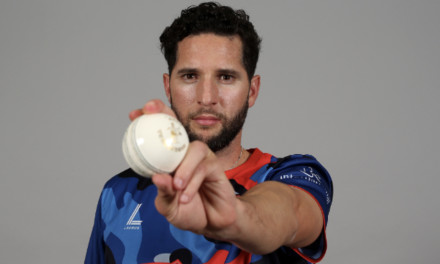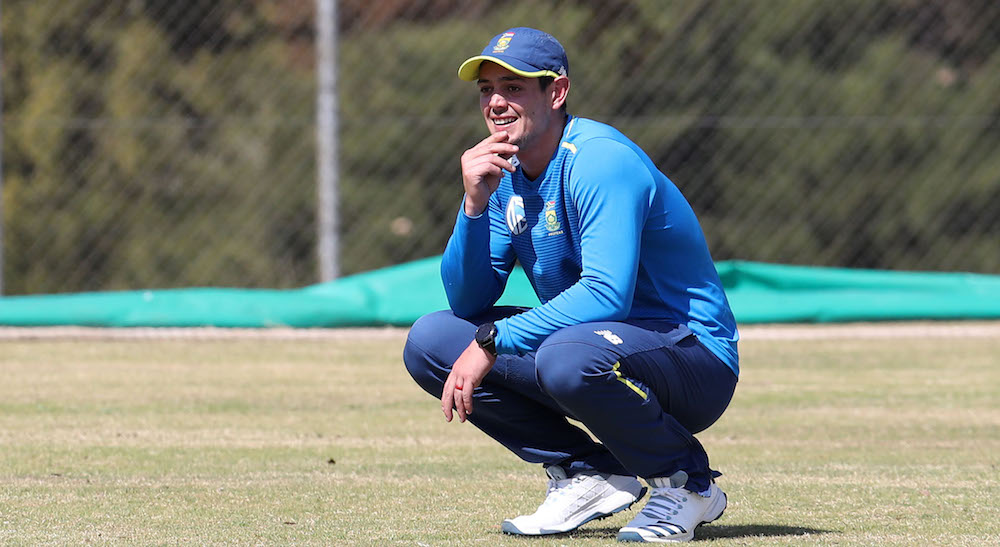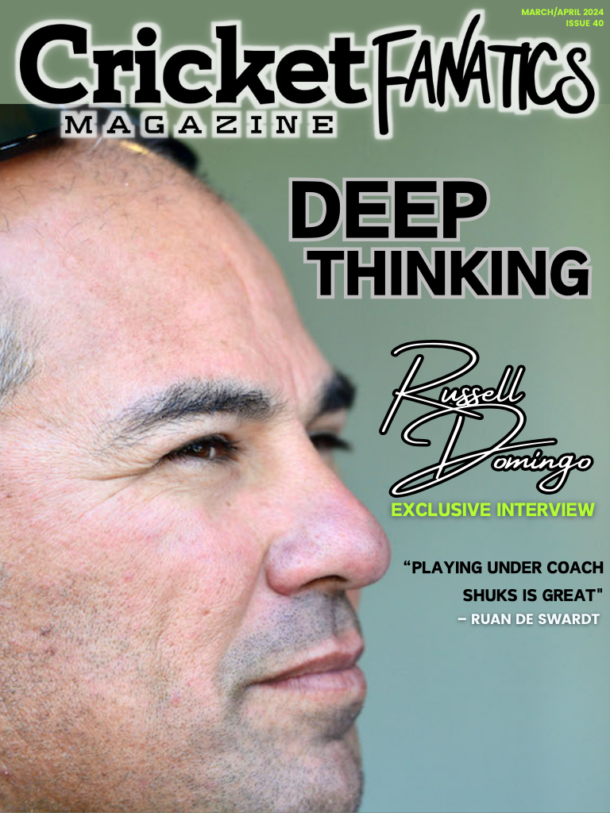The ICC under-19 cricket world cup kicks off a month before Valentine’s day, 14 January next year. The young Proteas will, however, have their own special Valentine in their ranks in the form of Valentine Kitime.
The talented right-handed batter has been churning out runs for Cornwall Hill College, striking at an average of 47.4 this season.
Kitime claims he didn’t watch cricket until he picked up a cricket bat at five-years-old and never looked back. “No one in my family watched cricket until I started playing. Now everyone loves cricket,” said the 18-year-old.
Kitime, who grew up in North West but now represents Gauteng, picked up a cricket bat for the first time while playing mini-cricket at primary school, opposed to the old-fashioned manner of playing backyard cricket. This did not stop him from taking to the gentleman’s game immediately and excelling at it, he claims.
He says that he took to cricket quite naturally before having his game elevated by his primary school coach in grade 5.
A big change of fortune came for Kitime when he moved from North West Province to Gauteng and went on to represent Northerns at U15 level, his first taste of provincial cricket. “I first got noticed when I started playing for Northerns in the provincial setup, in Pretoria,” says the young batter.
Textbook technique
Kitime describes his batting style as “an accumulator that works hard for [his] runs and grinding it out”. The batter, who prefers to come in at number three, but does not mind opening the batting, prefers to keep his batting as uncomplicated as possible.
“I don’t normally play rash big shots,” he says. “But I will [play big shots] if the situation dictates,” said a level-headed Kitime.
Keeping his shots in the V is not something that Kitime is conscious of doing but his coaching from a formative age lends his technique to keeping his batting quite textbook. “I just play the ball naturally, as it comes. When on the front foot I prefer the cover drive or the lofted on-drive,” he says.
The focus on batting technique has been successful for Kitime so far, he began noticing the change around the age of 17 when his batting started to be more consistent.
“It’s just being consistent, to be honest. Scoring big runs is important but it’s more important to score that consistently, whether it’s 100’s or 50’s,” he said.
Before that Kitime used to get lots of 30’s and 40’s but learning to convert them to 70’s and 80’s regularly has been a big improvement in his game.
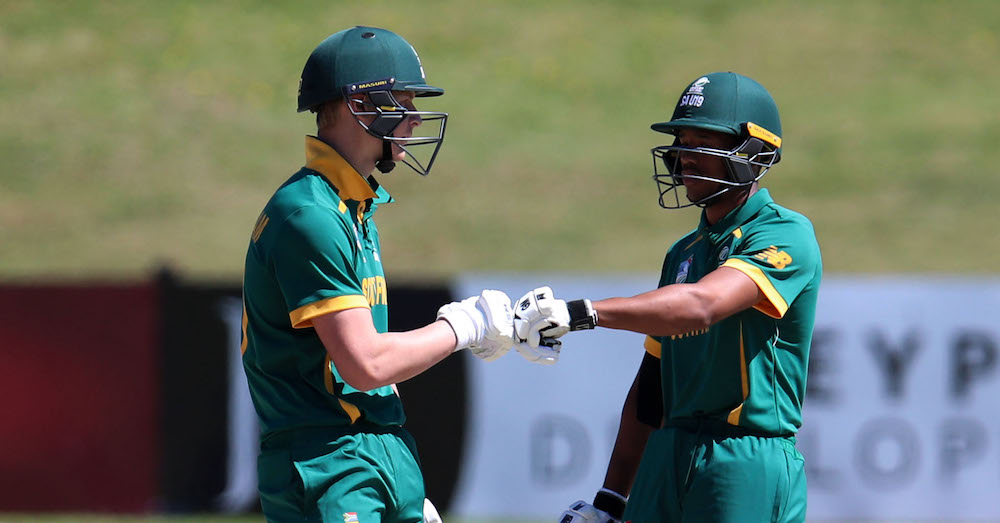
Learning from the best
The South Africa U19 team has a background staff that contains an excellent mix of experienced coaching as well as former players who have played at the very highest level. Kitime acknowledges the role that head coach and former Cape Cobras coach, Shukri Conrad has had on his game outside of the textbook guidance.
“Coach Shuks has been immense in my development and processes so far,” said Valentine.
“The mental side of my game has developed… through having one on one conversations and helping me believe in myself. [Conrad] has made me realise that I can actually go out there and perform, I’m in control because no one else is going to go out there and bat for me,” he said.
Kitime believes his game has been taken to the next level by the coaches he has been able to work with at the junior Proteas. Neil McKenzie is one of those coaches as he is currently employed as the batting consultant for the South African U19 team.
“Neil McKenzie has been huge for my game. We worked on a lot of stuff that developed my game that I can actually start converting into runs,” Kitime says about the former Proteas opening batter.
A lot of emphasis has been placed on his batting against spin bowling. Kitime believes it has now become a strength of his. “We did quite a bit of work on facing spin bowling. The ball turning away and the ball turning in. My [facing] spin game has gone up. I’m looking forward to facing spin bowlers from around the world,” he said.
Through inspiring and being inspired
Kitime has found his inspiration to succeed in watching fellow black players break barriers and become household names in sports that have been historically white-dominated, in South Africa.
“I really look up to [Springbok rugby captain] Siya Kolisi and Temba Bavuma, what they are doing in terms of representing the country at the highest level and just reaching that level is something I aspire to do,” he said.
Kitime hopes to one day inspire other black children to chase their dreams and show them that anyone can achieve their dreams through hard work, he said.
“I think obviously inspiring other black kids coming up or just kids that play sport and cricket in general. Just try to inspire them to have a better future and better life,” Kitime says about his future aspirations in inspiring the next generation.

